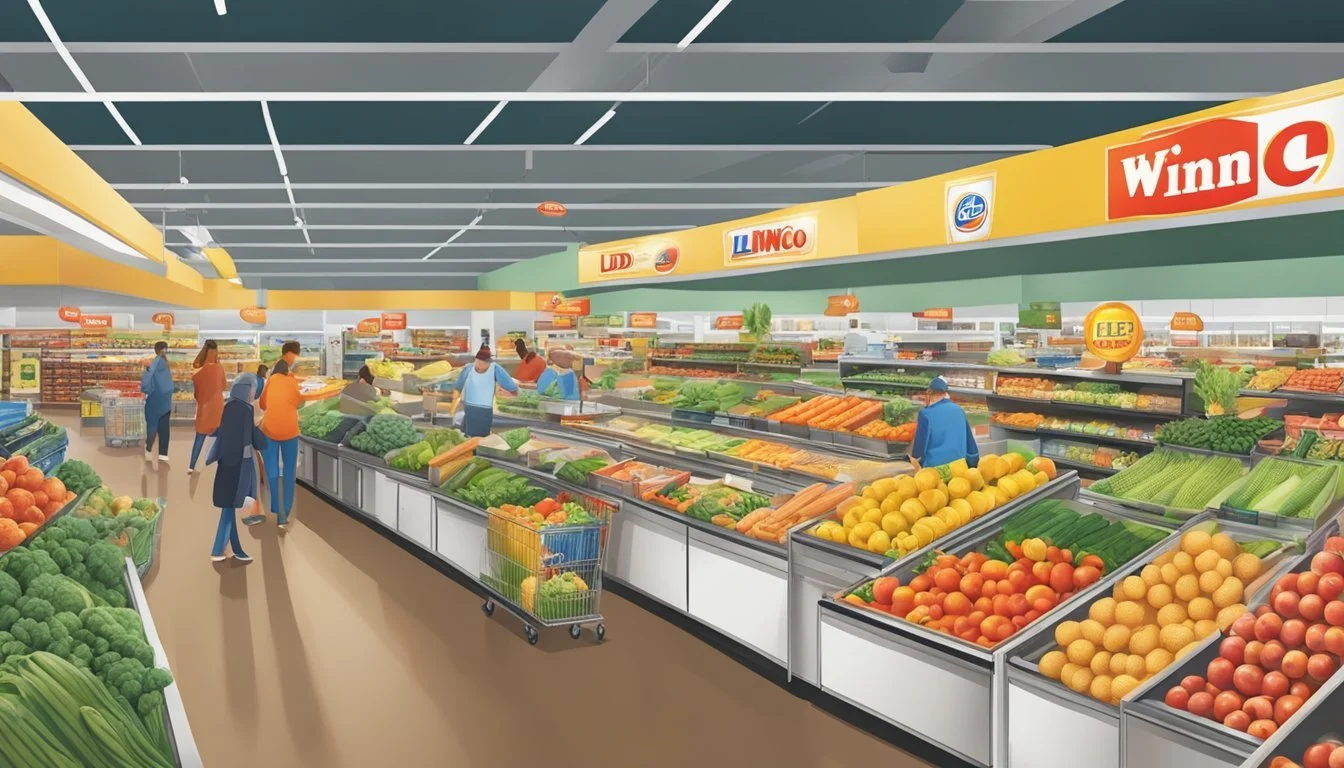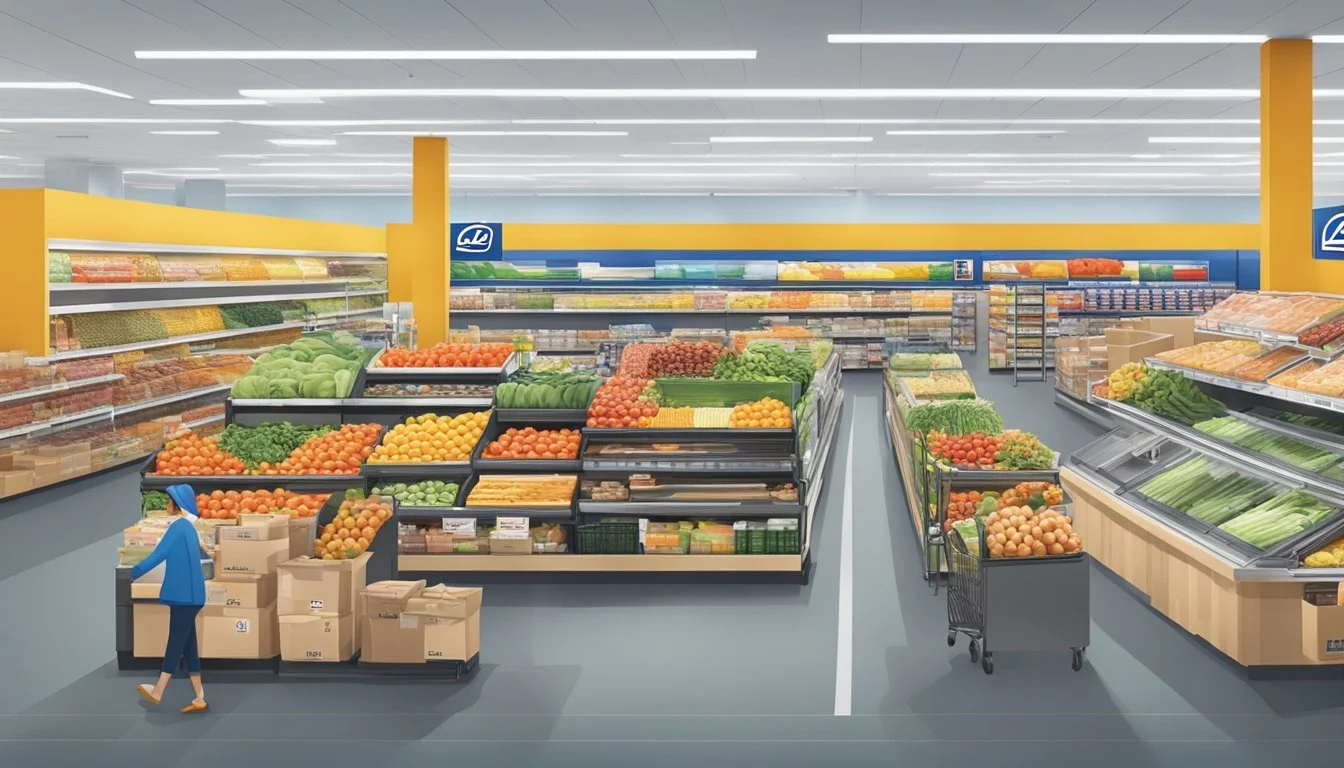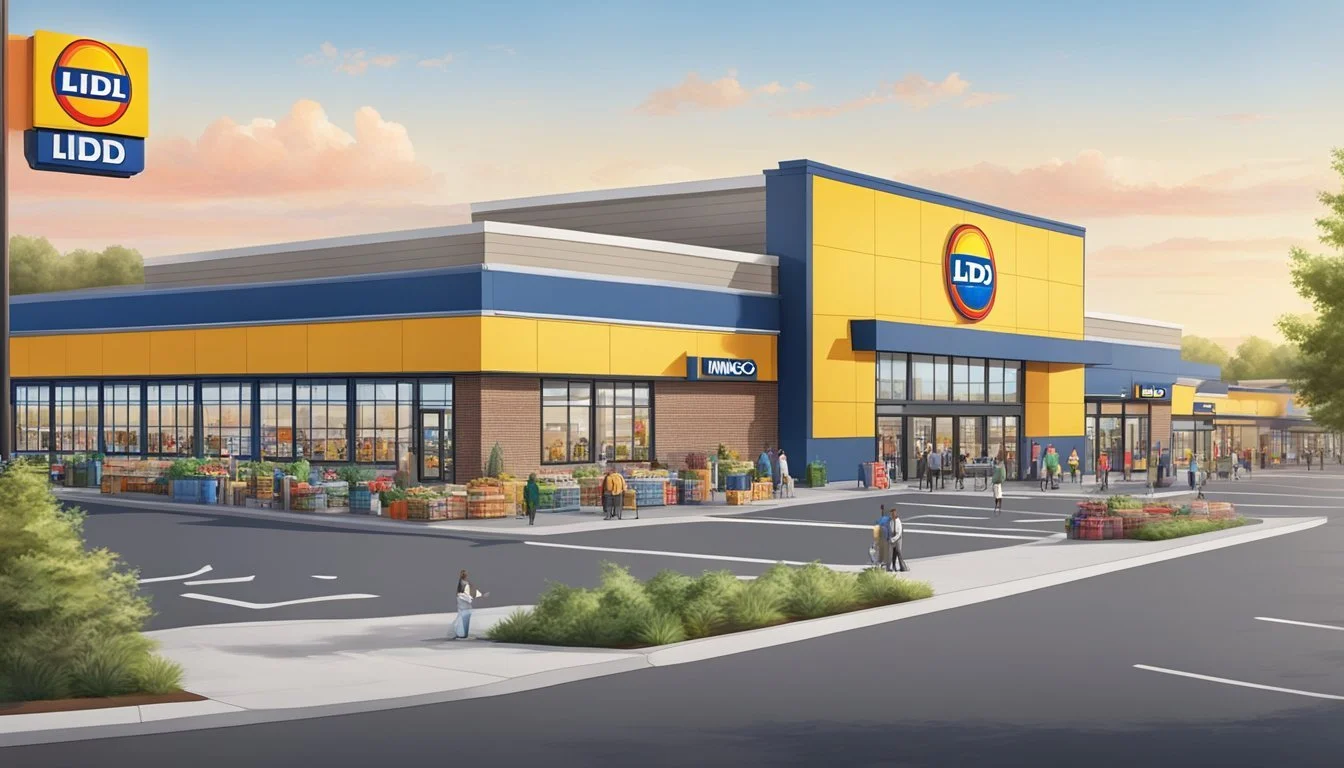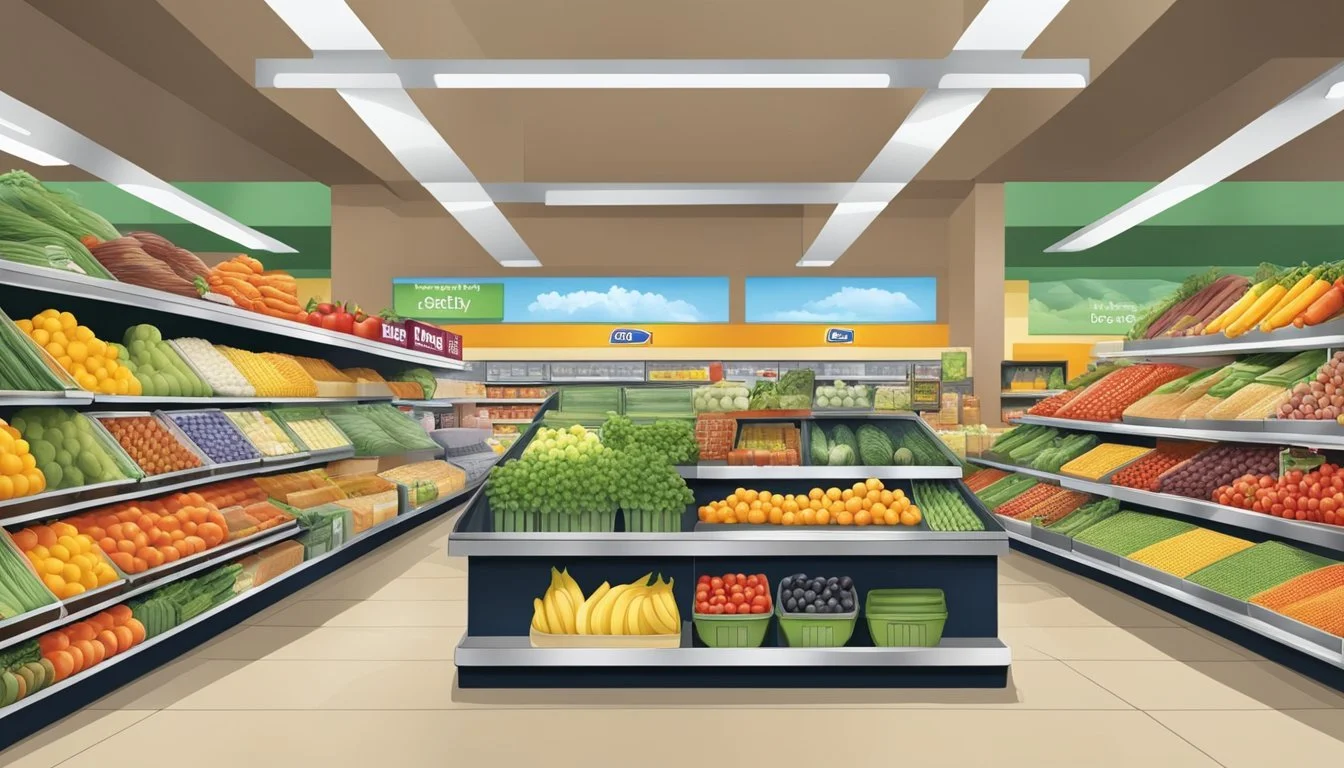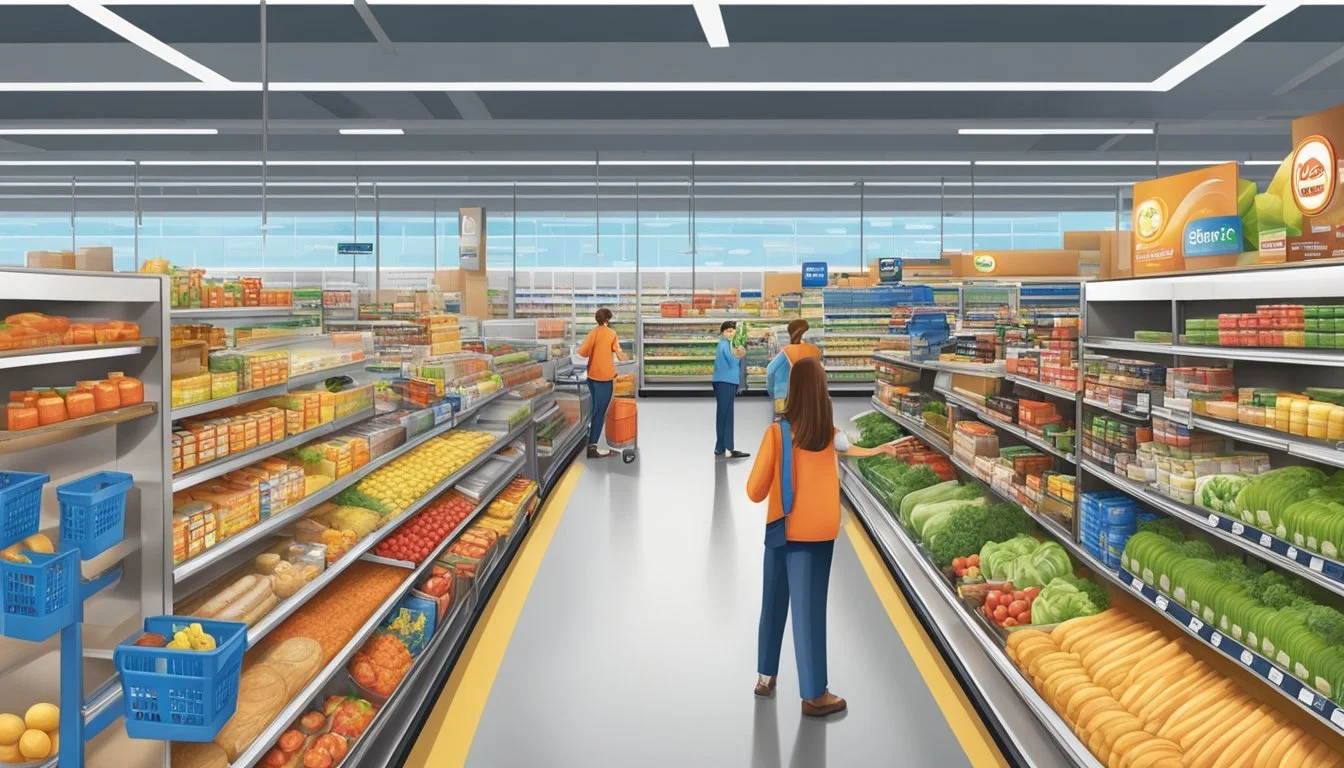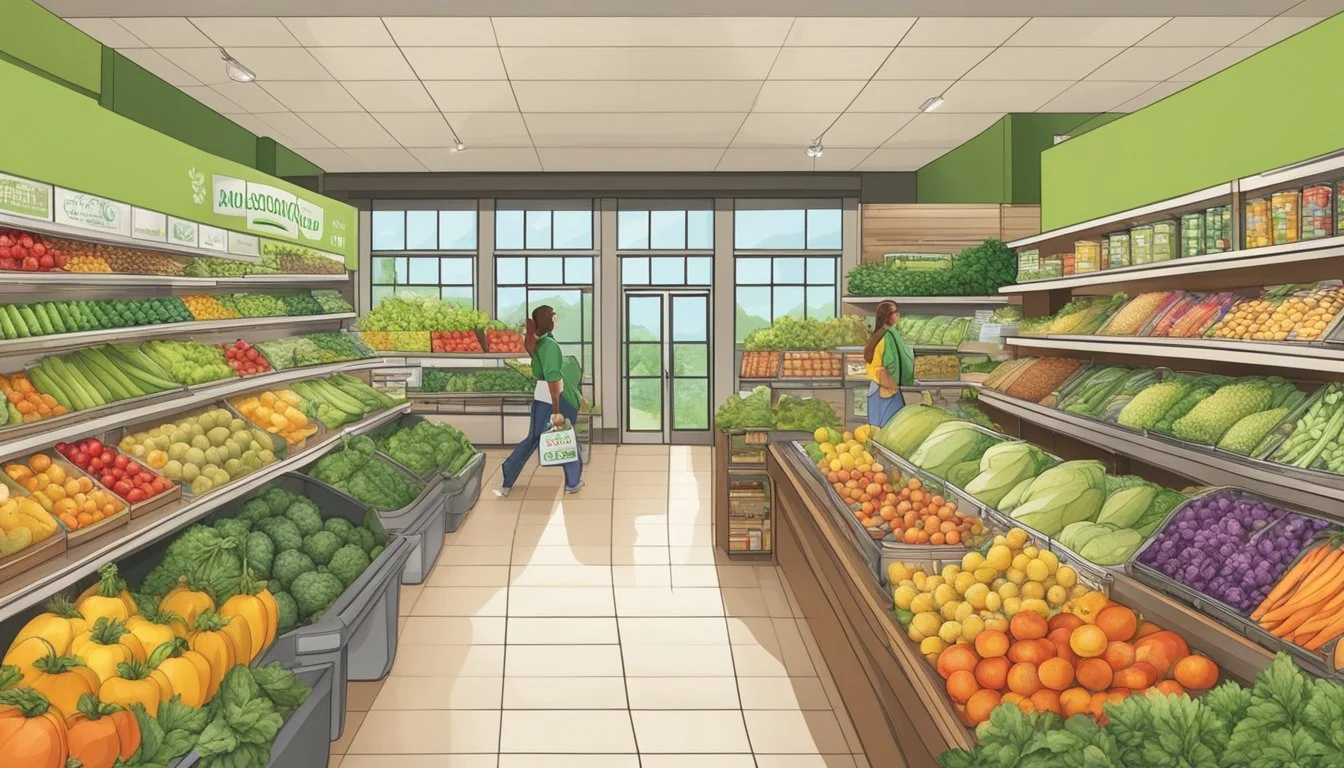Lidl vs WinCo Foods
A Comprehensive Comparison of Price and Quality
Grocery shoppers seeking value have many options in 2024, with Lidl and WinCo Foods emerging as top contenders for budget-friendly groceries. Both chains have carved out reputations for low prices and efficient operations, appealing to cost-conscious consumers.
Lidl and WinCo Foods offer some of the lowest grocery prices in America, with each store employing unique strategies to keep costs down. Lidl, a German-owned discount supermarket chain, has rapidly expanded across the United States in recent years. WinCo Foods, an employee-owned company based in the western U.S., has built a loyal following with its no-frills approach and bulk buying options.
Comparing these two grocery giants reveals interesting contrasts in their business models, product offerings, and shopping experiences. From store layouts to private label brands, Lidl and WinCo Foods each present distinct advantages for savvy shoppers looking to stretch their grocery budgets.
Company Overviews
Lidl and WinCo Foods are prominent grocery chains with unique histories and growth trajectories. Both have expanded significantly in recent years, employing different strategies to capture market share.
History and Growth of Lidl
Lidl was founded in 1973 in Neckarsulm, Germany. The company began as a small grocery store and quickly expanded throughout Europe. Lidl entered the U.S. market in 2017, opening its first stores on the East Coast.
The chain focuses on offering high-quality products at affordable prices. Lidl's stores are designed for efficiency, with a streamlined selection of brands and products. This approach allows for competitive pricing and rapid customer turnover.
Lidl has grown to over 11,000 stores in 32 countries. In the U.S., the company continues to expand, with plans to reach 1,500 stores by 2025.
History and Growth of WinCo Foods
WinCo Foods traces its roots to 1967 when it was founded as Waremart in Boise, Idaho. The company rebranded to WinCo Foods in 1999, with the name standing for "Winning Company."
WinCo operates as an employee-owned company, giving workers a stake in the business. This model has contributed to strong employee loyalty and customer service.
The chain is known for its no-frills approach and bulk food sections. WinCo has steadily expanded across the western and southwestern United States. As of 2024, WinCo operates over 130 stores in 10 states, focusing on controlled growth and maintaining its low-price strategy.
Business Models and Strategies
Lidl and WinCo Foods employ distinct strategies to provide affordable groceries. Each company takes a unique approach to sourcing, store operations, and customer experience.
Lidl's Strategy
Lidl focuses on a no-frills shopping experience with a limited selection of high-quality, low-cost items. The company sources many products from private-label brands, allowing for better price control. Lidl's stores feature simple layouts and efficient designs to reduce operational costs.
Lidl's business model resembles that of Aldi, emphasizing cost-cutting measures throughout the supply chain. The company negotiates directly with suppliers to secure lower prices. Lidl also minimizes labor costs by using a lean workforce and expecting employees to perform multiple roles.
Unlike traditional supermarkets, Lidl rotates a selection of non-food items weekly, creating a "treasure hunt" atmosphere that encourages frequent visits. This strategy helps drive foot traffic and impulse purchases.
WinCo Foods' Approach
WinCo Foods operates as an employee-owned company, fostering a sense of ownership and dedication among its workforce. The company's business model centers on bulk purchasing and passing savings directly to customers.
WinCo's stores are larger than Lidl's, resembling warehouse-style layouts. This format allows for extensive bulk sections where customers can purchase items in large quantities at discounted prices. The company's approach is similar to Costco in this regard.
To keep costs low, WinCo Foods eschews traditional advertising, relying instead on word-of-mouth and low prices to attract customers. The company also cuts expenses by not accepting credit cards, avoiding associated transaction fees.
WinCo's strategy includes 24-hour operations in many locations, catering to diverse customer schedules. This approach differentiates WinCo from competitors like Trader Joe's, which typically have more limited hours.
Store Layout and Shopping Experience
Lidl and WinCo Foods offer distinct store layouts and shopping experiences. Both prioritize efficiency but take different approaches to product presentation and customer flow.
Navigating a Lidl Store
Lidl stores typically feature a compact layout with wide aisles. Products are often displayed in their original shipping boxes, reducing unpacking time. The stores focus on a curated selection of items, with a mix of store brands and name brands.
Lidl's layout encourages quick shopping trips. Produce sections are usually near the entrance, followed by bakery and dairy. The center aisles house packaged goods and household items.
Checkout areas are efficient, with multiple lanes and self-checkout options. Lidl cashiers are known for their speed, moving customers through quickly. Bagging is done by shoppers at a separate counter after payment.
Shopping at WinCo Foods
WinCo Foods stores are typically larger than Lidl, offering a warehouse-style shopping experience. The layout is designed for bulk buying and cost savings.
Aisles are wide to accommodate pallets and large shopping carts. WinCo is known for its extensive bulk foods section, where customers can purchase dry goods in custom quantities.
Produce, meat, and dairy sections line the store's perimeter. Center aisles contain packaged goods, with many items stacked on pallets for easy restocking.
WinCo's checkout process involves customers bagging their own groceries. The store provides long conveyor belts and ample bagging space. Customer service desks offer additional assistance for returns or inquiries.
Product Variety and Availability
Lidl and WinCo Foods offer diverse product selections to cater to different customer needs. Both stores stock a range of grocery essentials, but their approaches to product variety and availability differ.
Lidl's Selection
Lidl focuses on a curated product assortment. The store carries around 3,500 items, emphasizing high-quality private label products. Lidl's produce section features fresh fruits and vegetables, often sourced from local suppliers when possible.
The meat department offers a selection of beef, pork, and poultry. Organic options are available in various categories, though the range may be more limited compared to larger supermarkets.
Lidl rotates specialty items weekly, introducing new products to keep the selection fresh and exciting. Gluten-free options are present, but the variety may be less extensive than in some other stores.
WinCo Foods' Product Line
WinCo Foods boasts a wider product range, with an average of 70,000 items in each store. The expansive selection includes national brands alongside WinCo's private label offerings.
The produce department at WinCo is known for its variety and competitive pricing. Shoppers can find a broad array of fresh fruits and vegetables, including organic options.
WinCo's meat section is comprehensive, featuring various cuts and types of meat. The store also maintains a sizable bulk foods section, allowing customers to purchase exact quantities needed.
Gluten-free and organic products are well-represented across different departments. WinCo's larger floor space accommodates a more extensive selection of specialty dietary items compared to Lidl.
Pricing and Cost-Saving Opportunities
Lidl and WinCo Foods both offer competitive pricing and various ways for customers to save money on groceries. Their strategies differ, but both aim to provide value to budget-conscious shoppers.
Comparing Prices
Lidl keeps prices low through efficient operations and a limited selection of brands. Their stores are designed for quick shopping, reducing overhead costs. WinCo also maintains low prices, often beating competitors like Walmart on staple items. For example, ground beef at WinCo can be $0.40 per pound cheaper than at Walmart.
Both stores focus on offering private label products, which are typically less expensive than name brands. Lidl's house brands make up a significant portion of their inventory, while WinCo balances store brands with national options.
Deals and Savings Programs
Lidl runs weekly specials and offers digital coupons through their app. These deals often feature significant discounts on fresh produce and seasonal items. WinCo, on the other hand, does not accept manufacturer coupons but compensates with consistently low everyday prices.
WinCo's bulk food section allows customers to purchase exactly the amount they need, potentially reducing waste and saving money. The store also offers a "Wall of Values" with rotating deals on various products.
Both chains have loyalty programs. Lidl's myLidl program provides personalized coupons and rewards, while WinCo offers an employee stock ownership plan that can translate to better service and engaged staff.
Quality and Freshness of Goods
Lidl and WinCo Foods prioritize quality and freshness in their product offerings. Both stores strive to provide customers with high-quality goods at affordable prices.
Fresh Produce and Perishables
Lidl's produce section features a wide variety of fruits and vegetables. The store sources many items locally when possible. Their produce is generally fresh and competitively priced.
WinCo Foods also offers a diverse selection of fresh produce. Their bulk bins allow customers to purchase exactly the amount they need. This helps reduce food waste and ensures fresher items.
Both stores maintain strict quality control measures for their meats and dairy products. Lidl's meat selection includes organic and free-range options. WinCo Foods offers a mix of pre-packaged and fresh-cut meats from their in-store butchers.
Non-Perishable Product Quality
Lidl's private label products are known for their quality and value. The store carries a mix of both name-brand and store-brand items. Their canned goods and packaged foods meet high standards.
WinCo Foods also offers a range of non-perishable items. Their bulk food section allows customers to purchase pantry staples in larger quantities. This can lead to significant savings.
Both stores stock a variety of bakery items. Lidl bakes fresh bread and pastries in-store daily. WinCo Foods offers a mix of freshly baked goods and pre-packaged items from well-known brands.
Location and Accessibility
Lidl and WinCo Foods differ significantly in their geographic footprint and store layouts. These factors impact how convenient each chain is for shoppers in different regions.
Store Proximity and Convenience
Lidl operates over 170 stores across the eastern United States, with locations in states like Virginia, North Carolina, and Georgia. The chain continues expanding, focusing on suburban and urban areas. WinCo Foods has about 130 stores, primarily in western states such as California, Oregon, and Washington. Their locations tend to be in suburban areas with larger lot sizes.
Lidl stores are typically smaller, around 20,000 square feet, allowing them to fit into more densely populated areas. WinCo stores are much larger, often 80,000-90,000 square feet, providing more selection but requiring longer travel times for many shoppers.
Parking and Access Features
Lidl prioritizes easy access with ample parking relative to store size. Their lots usually offer 80-100 spaces, including designated spots for families and electric vehicles. Store entrances are designed for quick entry and exit.
WinCo's larger stores come with expansive parking lots, often 300-400 spaces. This accommodates their higher customer volumes but can mean longer walks from car to store. WinCo typically provides cart corrals throughout the lot and offers wide aisles inside for easy navigation with large carts.
Both chains emphasize accessibility, with ramps and automatic doors. Lidl tends to have more compact store layouts, while WinCo's larger format allows for wider aisles and more spacious departments.
Staff and Customer Service
Lidl and WinCo Foods take different approaches to staffing and customer service. Both aim to balance efficiency with shopper satisfaction, but their methods vary in key ways.
In-Store Assistance
Lidl employs a lean staffing model to keep costs down. Their stores have fewer employees on the floor compared to traditional supermarkets. This can make it harder to find help when needed. Staff focus primarily on restocking and running registers.
WinCo Foods, being employee-owned, often has more engaged workers. Their stores typically have more staff available to assist customers. Employees may offer product recommendations or help locate items. The employee-ownership structure can lead to greater job satisfaction and lower turnover rates.
Checkout and Support
Lidl emphasizes speed at checkout. They use efficient scanning systems and expect customers to bag their own groceries. This approach reduces wait times but provides less personalized service.
WinCo Foods offers a mix of self-checkout and staffed lanes. Their cashiers often engage more with shoppers, offering bagging assistance and answering questions. Customer service desks at WinCo tend to be more robust, handling returns and special requests.
Both chains prioritize keeping prices low, which can impact service levels. Lidl's minimalist approach may appeal to shoppers who prefer quick, no-frills transactions. WinCo's model might better suit those who value more traditional customer service interactions.
Consumer Perceptions and Brand Reputation
Lidl and WinCo Foods have distinct reputations among shoppers. Recent surveys and customer feedback provide insights into how these grocery chains are perceived by consumers.
Public Surveys and Ratings
Dunnhumby's 2024 grocery retailer rankings place WinCo Foods in the 7th position with a score of 4.464. Lidl follows closely behind at 8th place, scoring 4.443. These high ratings indicate strong consumer satisfaction for both chains.
Consumer Reports' supermarket survey reveals shoppers' opinions on various aspects:
Cleanliness
Price
Food quality
Staff courtesy
Both Lidl and WinCo Foods perform well in price competitiveness. WinCo's bulk options are particularly popular among budget-conscious shoppers.
Customer Loyalty and Feedback
Lidl's expansion in the U.S. has garnered positive attention. Customers praise its:
Private label products
Weekly specials
European-style bakery offerings
WinCo Foods maintains a loyal customer base, especially in Western states. Shoppers appreciate:
Employee ownership model
No-frills shopping experience
Low prices on staple items
Online reviews and social media comments often highlight both chains' value proposition. Customers frequently mention savings compared to traditional supermarkets.
Sustainability and Community Impact
Lidl and WinCo Foods have made strides in sustainability and community engagement. Both retailers implement initiatives to reduce their environmental footprint and support local communities, though their approaches differ.
Corporate Social Responsibility
Lidl released its first Corporate Social Responsibility (CSR) Report, showcasing its commitment to social and environmental initiatives. The report highlights Lidl's progress in areas such as sustainable sourcing, waste reduction, and community support. WinCo Foods, while not publicly releasing a CSR report, focuses on employee ownership and local community involvement.
Lidl operates over 12,200 stores in 31 countries, allowing for large-scale impact through its CSR efforts. WinCo's employee-owned model fosters a sense of responsibility among staff, potentially leading to more localized community engagement.
Environmental Initiatives
Both retailers have implemented measures to reduce plastic waste. Lidl aims to make 100% of its private label packaging recyclable, reusable, or refillable. WinCo encourages customers to bring reusable bags and offers low-cost alternatives to single-use plastic bags.
Lidl has set targets for reducing food waste and increasing energy efficiency in its stores and distribution centers. WinCo focuses on operational efficiency, which indirectly reduces its environmental impact through lower energy consumption and waste generation.
Sustainable sourcing is a priority for both companies. Lidl works with suppliers to ensure responsible practices, while WinCo emphasizes local sourcing when possible, reducing transportation emissions and supporting regional economies.
Final Thoughts
Both Lidl and WinCo Foods offer compelling options for budget-conscious shoppers. Lidl stands out with its efficient store layouts and competitive pricing on a curated selection of brands. The German chain's no-frills approach allows for quick shopping trips.
WinCo Foods impresses with its extensive bulk section and employee-owned business model. This structure often translates to motivated staff and cost savings passed on to customers. Their larger stores provide more product variety compared to Lidl.
Price comparisons show these grocers frequently undercut competitors like Walmart on staple items. Shoppers can expect significant savings at both chains, particularly on store-brand products.
Store locations play a key role in accessibility. Lidl has a stronger presence on the East Coast, while WinCo Foods dominates in the Western United States. This geographic divide may ultimately determine which store is more convenient for many shoppers.
Quality perceptions vary between the two. Lidl's European-style offerings and rotating specialty items appeal to some customers. WinCo Foods' focus on American brands and bulk goods resonates with others.
Ultimately, the choice between Lidl and WinCo Foods comes down to personal preferences, shopping habits, and local availability. Both provide solid options for stretching grocery budgets in 2024.

